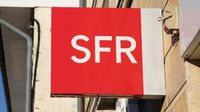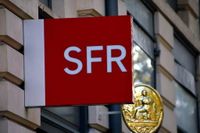In a significant turn of events for the French telecommunications market, Patrick Drahi, the owner of SFR, is reportedly contemplating the sale of the telecom giant. According to an investigation by Le Figaro, this potential sale is part of a broader strategy to "turn the page on telecoms in France" as Drahi seeks to lighten the financial burden of Altice, the parent company of SFR, which is grappling with a staggering debt of 15.5 billion euros.
As of April 6, 2025, multiple sources have confirmed that Altice is exploring options for either a total or partial divestiture of SFR, which has seen a dramatic decline in performance. The anticipated sale price is estimated to be between 20 and 25 billion euros. This move follows a recent agreement to restructure Altice's debt, which had previously ballooned to 24 billion euros, resulting in a reduction of 8.6 billion euros.
Since 2023, SFR has lost over two million subscribers, a situation that has raised concerns regarding its operational viability. The company has struggled to maintain its market share in an environment that has remained largely stagnant for over a decade. Despite having a technically operational 5G network, customer satisfaction ratings have lagged behind those of competitors like Orange and Bouygues Telecom.
In light of these challenges, Drahi is reportedly aiming to finalize a deal before the presidential elections in 2027, which adds a layer of urgency to the proceedings. Analysts have noted that while the idea of selling SFR is not new, the current financial restructuring has positioned Drahi to negotiate from a stronger standpoint than in the past. In 2023, Le Monde had already reported that banks were engaged to identify potential buyers, indicating that the groundwork for a sale has been laid.
Among the interested parties are France's major telecom players—Orange, Bouygues Telecom, and Free—who are keen to explore the possibility of acquiring SFR or its assets. Each of these companies has expressed interest in studying the potential acquisition, with Bouygues Telecom being identified as a frontrunner due to its existing agreement to pool mobile networks with SFR since 2014.
However, the prospect of a straightforward sale to one of these operators raises significant regulatory concerns. If Orange were to acquire SFR outright, it could lead to a near-monopoly situation, controlling up to 80% of the market share. Similarly, a buyout by Bouygues or Free could result in a duopoly that would endanger the survival of a third operator.
To navigate these regulatory hurdles, analysts suggest that a more feasible approach might involve a segmented sale, where SFR's assets could be distributed among the interested parties. This would allow for a balanced market structure while also appeasing regulatory bodies concerned about maintaining competition.
On the international front, foreign investors such as Saudi Telecom Company (STC) and Etisalat from the United Arab Emirates are reportedly exploring their options as well. Their interest could complicate the landscape further, as a sale to a foreign entity could be politically sensitive, particularly concerning issues of national sovereignty and market control.
The current telecommunications market in France is dominated by four major players: Orange, Free, Bouygues Telecom, and SFR, which together account for 96% of the market share. This concentration has led to significant scrutiny from regulators, especially as the market has been characterized by intense price competition since the entry of Free Mobile in 2012.
As the discussions surrounding the potential sale of SFR continue, questions loom over the future of its nearly 7 million subscribers. Customers are left in uncertainty about what changes may come, including potential price increases or shifts in service quality. The possibility of a consolidation back to three major operators has been a long-standing aspiration among industry players, as many believe it could stabilize prices and improve service quality.
However, the road to achieving such a consolidation is fraught with challenges. Any attempt to absorb SFR into one of the existing operators would likely face significant opposition from regulatory authorities, both in France and at the European level. The European Commission has historically been cautious about mergers that could reduce market competition.
Ultimately, the future of SFR and its customers remains uncertain. While the prospect of a sale appears increasingly likely, the complexities involved—ranging from regulatory approvals to the strategic interests of potential buyers—will play a crucial role in determining how this situation unfolds. As the telecommunications landscape in France continues to evolve, all eyes will be on Patrick Drahi and Altice as they navigate these turbulent waters.








